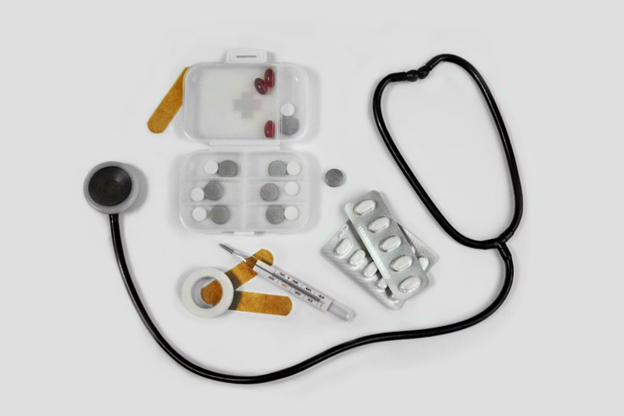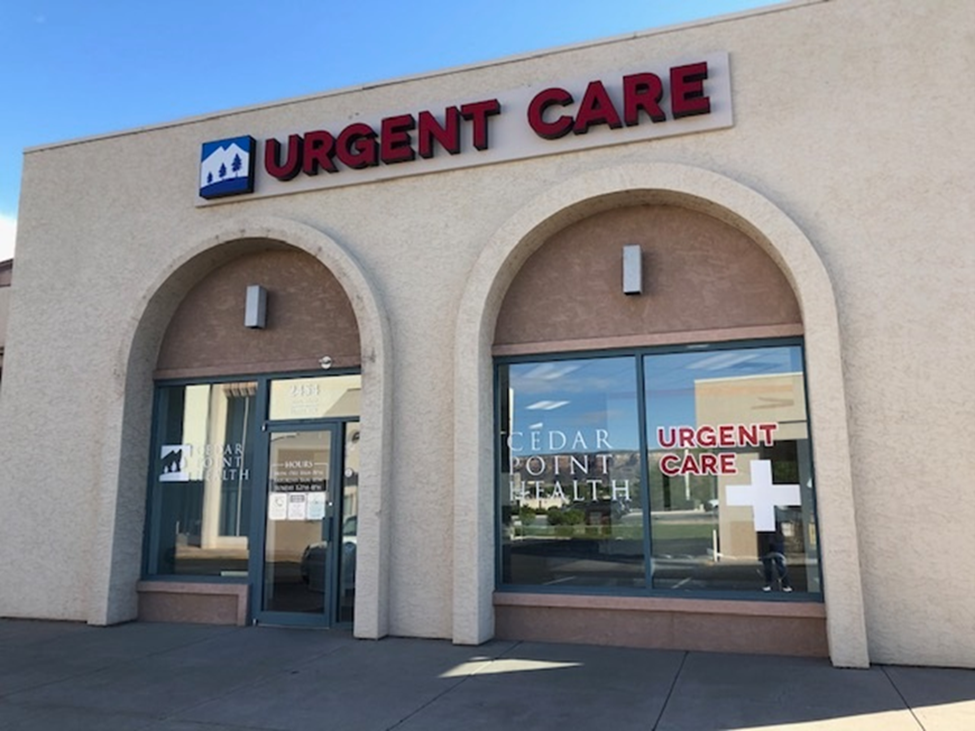Navigating healthcare coverage options in West Colorado can be a bit of a maze, especially when it comes to understanding government programs like Medicare and Medicaid. These programs are designed to help individuals access the medical care they need, but with so many details and nuances, it’s easy to feel lost in the process.
Whether you’re nearing retirement, managing a health condition, or helping a loved one through their healthcare options, having a clear understanding of how both Medicare and Medicaid work can provide peace of mind. This guide will answer the most common questions about these programs, so you can make well-informed decisions and find the coverage that’s right for you.
Table Of Contents
- What’s the Real Difference Between Medicare and Medicaid?
- Who Qualifies for Medicare and Medicaid?
- How Do I Apply for Medicare and Medicaid?
- What Services Are Covered by Medicare and Medicaid?
- Can I Use Both Medicare and Medicaid Together?
- Conclusion
- FAQs
What’s the Real Difference Between Medicare and Medicaid?
Medicare and Medicaid are two distinct programs, but they both serve a critical role in the healthcare system. Understanding the difference is the first step toward figuring out which one (or both) may be right for you.
Medicare
Medicare is a federal program designed for individuals who are 65 years or older, as well as for younger individuals who have specific disabilities or conditions, such as end-stage renal disease (ESRD). Medicare offers several different parts that cover different services:
- Part A – Hospital insurance, covering inpatient care in hospitals, skilled nursing facilities, hospice care, and some home health care.
- Part B – Medical insurance, covering outpatient care like doctor’s visits, certain preventive services, and medical equipment.
- Part C (Medicare Advantage) – An alternative to traditional Medicare, this plan is offered by private insurance companies and bundles the coverage from Part A and Part B, often with added benefits like vision, dental, and hearing coverage.
- Part D – Prescription drug coverage, which can be purchased separately or included in some Medicare Advantage plans.
Medicaid
Unlike Medicare, which is designed for older adults and those with certain disabilities, Medicaid is a joint federal and state program that helps individuals and families with low income access healthcare services. Medicaid is available to people of all ages, and the income eligibility requirements can vary by state.
Medicaid covers a broad range of services, including hospital stays, doctor visits, nursing home care, mental health services, and even long-term care, which Medicare does not typically cover. Depending on your state, Medicaid may also include additional benefits like dental, vision, and hearing services.

The eligibility rules for Medicaid can vary widely by state because each state has some flexibility in how they administer the program. Some states have expanded Medicaid under the Affordable Care Act, making it available to more low-income adults, while others have more restrictive guidelines.
Who Qualifies for Medicare and Medicaid?
The eligibility requirements for Medicare and Medicaid are different and can often be confusing. Here’s a breakdown of who qualifies for each:
Medicare Eligibility
To qualify for Medicare, you generally need to meet one of the following criteria:
- Age: You are 65 years old or older, and a U.S. citizen or permanent legal resident for at least five years.
- Disability: If you are under 65 but have a qualifying disability (such as being on Social Security Disability Insurance for at least 24 months), you can qualify for Medicare.
- End-Stage Renal Disease (ESRD) or ALS (Lou Gehrig’s Disease): Individuals of any age with these conditions qualify for Medicare.
Most people automatically qualify for Part A when they turn 65, but they must actively sign up for Part B, which covers outpatient care and doctor visits. There are also options to add Part D for prescription drugs or Medicare Advantage (Part C) to combine all of the parts into one plan.
Medicaid Eligibility
Medicaid eligibility is based on income and other factors, and each state has different rules for who qualifies. Generally, you must meet the following criteria:
- Income level – Medicaid is available to individuals and families with low income, but the threshold varies by state.
- Age or disability – Medicaid covers people of all ages, including children, pregnant women, and individuals with disabilities.
- Household size – Medicaid eligibility is also based on the number of people in your household and your total household income.
- Other factors – Some states have expanded Medicaid under the Affordable Care Act, meaning that low-income adults without children may also qualify in some states.
If you are over 65, have a disability, or meet other criteria, you may qualify for both Medicare and Medicaid, which is known as “dual eligibility.” In this case, Medicaid can help cover costs that Medicare does not, such as co-pays, deductibles, and other out-of-pocket expenses.
How Do I Apply for Medicare and Medicaid?
The application process for both programs can be straightforward if you understand the steps and deadlines involved.
How to Apply for Medicare
If you’re turning 65, you’ll want to sign up for Medicare during your Initial Enrollment Period, which begins three months before your 65th birthday and ends three months after your birthday. If you’re already receiving Social Security benefits, you will be automatically enrolled in Part A and Part B. However, if you’re not receiving Social Security, you will need to apply through the Social Security Administration (SSA).
You can sign up for Medicare online, by phone, or in person at a local SSA office. If you miss your initial enrollment period, you can still apply during the General Enrollment Period (from January 1 to March 31), but there may be penalties.
How to Apply for Medicaid
The application process for Medicaid depends on your state. You can usually apply online, by mail, or in person. Some states have expanded Medicaid eligibility under the Affordable Care Act, so even if you didn’t qualify for Medicaid in the past, it’s worth checking again. Many states have a streamlined online application process, and you may receive a decision relatively quickly.
Keep in mind that Medicaid enrollment is open year-round, unlike Medicare, which has specific enrollment windows.
What Services Are Covered by Medicare and Medicaid?
While both Medicare and Medicaid cover essential healthcare services, there are some key differences in terms of what’s included. Here’s a look at what you can expect from each program:
Medicare Coverage
Medicare covers a wide range of healthcare services, but it does not cover everything. Some of the most common services covered by Medicare include:
- Hospital stays (Part A) – This includes inpatient care in hospitals and skilled nursing facilities.
- Outpatient care (Part B) – Doctor visits, lab tests, and medical equipment like wheelchairs and walkers.
- Prescription drugs (Part D) – Medicare’s prescription drug plan helps cover the cost of medications.
- Preventive services (Part B) – These include screenings, flu shots, and other services to help prevent illness.
However, Medicare does not cover certain types of care, including:
- Long-term care – Medicare does not typically cover the cost of nursing home care or assisted living.
- Dental care – While Medicare covers certain dental procedures if they’re medically necessary (such as surgery to treat jaw issues), routine dental care (like cleanings and fillings) is not covered.
- Vision and hearing – Medicare does not provide coverage for routine vision exams, glasses, or hearing aids.
Medicaid Coverage
Medicaid offers more comprehensive coverage than Medicare, particularly for low-income individuals. Some of the services Medicaid covers that Medicare does not include:
- Long-term care – Medicaid covers nursing home care, assisted living, and even some home-based services for seniors and individuals with disabilities.
- Dental, vision, and hearing – Many states include dental care, vision exams, and hearing aids under Medicaid.
- Mental health services – Medicaid covers inpatient and outpatient mental health services, as well as substance abuse treatment.
- Transportation – Medicaid may cover transportation to medical appointments for individuals who are unable to drive.
The specific benefits of Medicaid can vary by state, so it’s important to check your state’s Medicaid website for a full list of covered services.
Can I Use Both Medicare and Medicaid Together?
Yes, many people are eligible for both Medicare and Medicaid. This is especially common among low-income seniors or individuals with disabilities. If you qualify for both, you may be able to receive benefits from both programs. Medicare will be the primary insurer, while Medicaid will cover additional costs that Medicare does not, such as co-pays, deductibles, and services like long-term care.
If you are dual eligible, you may also qualify for a Dual Eligible Special Needs Plan (D-SNP), which is a type of Medicare Advantage plan that provides benefits tailored for individuals who qualify for both Medicare and Medicaid. This type of plan often includes additional coverage for vision, dental, and hearing, making it a comprehensive option for those who qualify.
Conclusion
Navigating the world of Medicare and Medicaid can seem like a complicated task, but understanding the differences and knowing what each program covers will help you make the right decision for your healthcare needs.
Whether you’re just starting to think about retirement or you’re managing a health condition, there are resources available to help guide you through the process. If you are looking for a good urgent care facility, turn to Cedar Point Health.
The key to finding the right plan is to understand your options and the eligibility requirements for both Medicare and Medicaid. From there, you can make decisions that will help ensure you receive the coverage you need at an affordable cost. And if you’re ever unsure, don’t hesitate to reach out to a healthcare professional who can guide you through the process and ensure that you make the best choice for your needs.
FAQs
- What’s the main difference between Medicare and Medicaid?
Medicare is for people 65 and older (or those with disabilities), while Medicaid is for low-income individuals and families of all ages.
- How do I apply for Medicare?
You can apply for Medicare online, by phone, or at a local Social Security office. If you are already receiving Social Security, you will be automatically enrolled.
- Can Medicaid cover long-term care?
Yes, Medicaid covers long-term care, including nursing home care and in-home services, which Medicare does not.
- Do I qualify for both Medicare and Medicaid?
If you are 65 or older, or have a disability, and meet the income requirements, you may qualify for both programs, which can offer additional benefits.
- What services does Medicaid cover that Medicare does not?
Medicaid covers services like dental, vision, hearing aids, and long-term care that Medicare does not. Coverage varies by state.
Cedar Point Health – Your Reliable Urgent Care in Montrose & Clifton
→ Walk-ins Welcome, 7 Days a Week
→ Self-Pay Visit Bundles Starting at $150
→ Fast and Affordable Urgent Care Services
Get the care you need without the wait – visit Cedar Point Health today →
⭐⭐⭐⭐⭐ Rated 4.9/5 by Patients Who Trust Our Care
Cory Phillips is a visionary leader and Chief Executive Officer at Cedar Point Health, based in Montrose, Colorado. With a strong commitment to enhancing healthcare services, Cory has dedicated his career to fostering collaborative environments that empower clinicians and improve patient care.
Related Articles:
Doctor vs Urgent Care: Which One Do You Need?
Health Services for Every Need: Walk-In Physicals and Evaluations






